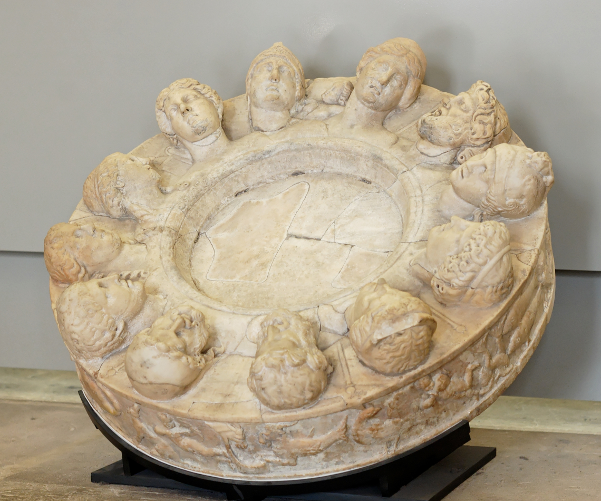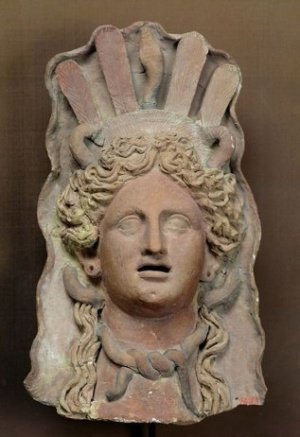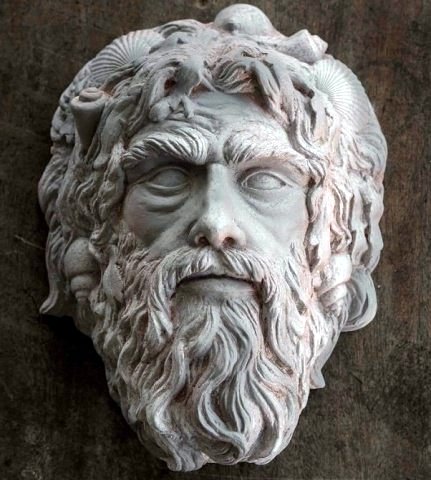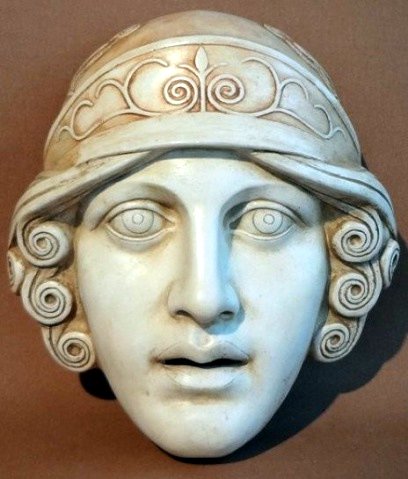Masks of Dii Consentes: Difference between revisions
No edit summary |
No edit summary |
||
| Line 5: | Line 5: | ||
<br> | <br> | ||
<br> | <br> | ||
'''Introduction to the Gods:''' | '''Introduction to the Gods:''' The '''Dii Consentes''', also as '''Di''' or '''Dei Consentes''' (once ''Dii Complices''), was a list of twelve major deities, six gods and six goddesses, in the pantheon of Ancient Rome. Their gilt statues stood in the Forum, later apparently in the Porticus Deorum Consentium. | ||
<br> | <br> | ||
<br> | <br> | ||
Revision as of 12:14, 27 March 2016

Although the ritual purpose of this 1st-century BC altar from Gabii is unclear, the twelve deities depicted correspond to the Dii Consentes.
Introduction to the Gods: The Dii Consentes, also as Di or Dei Consentes (once Dii Complices), was a list of twelve major deities, six gods and six goddesses, in the pantheon of Ancient Rome. Their gilt statues stood in the Forum, later apparently in the Porticus Deorum Consentium.
These masks are written about in highly rare versions of the Magus Ars Lexus. Up until 2035 they were buried in a tomb outside Pompeii.
The Mask of Jupiter
File:Masks of Dii Consentes Jupiter.jpg
This mask is made of a marble plaster, ivory, gold, silver, and copper melded and smoothed together in a beautiful mask. When put to the face is molds to the wearer, giving him or her slightly dusky skin, with pale brows. The mask gives the wearer abilities approximated so: Charisma 5, Leadership 5, Dominate 4, Presence 4. Wearing the mask renders the wearers male.
The Mask of Ceres

As the keeper of the laws of life and death this mask has the most interest to those of Necromantic leanings. Made of Ivory, gold, and amathyst the mask is surpisingly very light to hold. The mask when worn renders the wearer female, if they are not already. The mask gives the wearer abilities approximated so:
The Mask of Neptune
The Mask of Athena
These masks were constructed by the artist Phidias, around 420 BC at Olympia. Phidias was a mage of some power, and historical documents held by the Order of Hermes tell how he worked his magic by math and various rites worked in the names and styles of Roman Gods. PHidias was known for having made several objects of power in his time, which had famous use.

